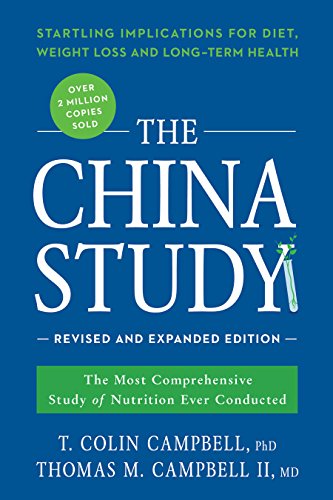

This article is an excerpt from the Shortform summary of "The China Study" by Colin Campbell. Shortform has the world's best summaries of books you should be reading.
Like this article? Sign up for a free trial here .
Why do we test on mice and other rodents? Are the results from research using rats and mice really applicable to humans?
We may not like it, but we’re closely related to mice, and research results from tests on mice and other rodents can tell us a lot about our own biology and how we respond to things like carcinogens. We’ll cover why research on mice is applicable to us and look at some examples of tests on mice that tell us about cancer risk factors for humans.
Tests on Mice and Their Applicability to Humans
Many studies are done with rodents, particularly animal testing on rats. How do we know the results apply to us?
We can look at the similarities between rats and humans to know how transferable these principles really are.
Commonalities Between Rats and Humans:
1. Rats and humans both need protein for the same bodily processes.
2. The ways in which protein is used in the body are virtually the same in rats and humans.
3. Humans consume the same percentage of protein as that shown to cause tumor growth in rats.
4. In both rats and humans, the promotion stage is far more critical than the initiation stage in the development of cancer.
Tests on Mice and Rodents Teach Us About Cancer in Humans
Indian Animal Testing on Rats and Liver Cancer
One research study out of India involved two groups of rats. Both groups were administered the carcinogen aflatoxin.
Group 1 ate a diet that was 20% protein (roughly the percentage of protein in the average Western diet).
Group 2 ate a diet that was 5% protein.
Shockingly, every rat eating a 20% protein diet showed evidence of liver cancer and none of the rats eating a 5% protein diet showed evidence of liver cancer.
A researcher not involved with the study, T. Colin Campbell, was struck by how these findings clarified his hypothesis that protein consumption in the Philippines was somehow related to childhood liver cancer. He couldn’t be sure that the results of the animal testing on rats were applicable to people, but he could see a link.
Campbell’s Rat Study
Curious, Campbell decided to do his own study with rats. (He would eventually study the effect of protein consumption on cancer risk in human subjects.)
In his studies, in which rats were administered the aflatoxin (AF), researchers confirmed and deepened the findings of the Indian study. Campbell found that animal-protein consumption increased the risk of various cancers (including liver, pancreatic, and breast) at different stages of the cancer’s development. The results remained consistent when the rats were dosed with other carcinogens, such as hepatitis B, indicating that animal proteins may open the door for multiple types of carcinogens (cancer-causing substances).
Research on Protein in the Initiation Stage of Cancer
Through various studies, Campbell and his researchers found that low-protein diets can do the following at the first stage of cancer development:
- Allow less of the carcinogen into the cell
- Slow the multiplication of cancer cells
- Reduce enzyme activity in the cell (enzyme activity “activates” the carcinogen, making it more dangerous)
This means that lowering your animal-protein intake can greatly decrease your chances of tumor initiation. In other words, a low-protein diet can decrease the number of seeds (activated carcinogens and damaged cells) in the ground (the body).
Research on Protein in the Promotion Stage
Rats given a high dose of a carcinogen but fed a low-protein diet were less at risk of developing a tumor, compared to those given a low dose of the carcinogen but fed a high-protein diet.
In other words, the presence of protein mattered more than the amount of the carcinogen. We can consume large doses of carcinogens and still not get cancer when we limit our animal-protein intake.
Interestingly, protein (specifically, casein) acted as a switch during this stage. Researchers could increase the amount of protein in an animal’s diet and watch the cancer-cell clusters grow. Two weeks later, they could decrease protein and watch cluster growth slow and even reverse. They could change the direction of growth multiple times, with both animals that started on a high-protein diet and those who started with a low-protein diet.
This implies that even after cancer growth was reversed, the cancer cells never disappeared. They were just dormant. So if you stop eating dairy for years but start eating it again later, you could reactivate cancer cells that have been dormant.
Clusters of cancer cells only developed when rats were fed diets of 12% casein protein or higher. Those who ate more than the required amount of protein they needed to survive and grow were at the greatest risk.
Implications for Humans
Generally, the amount of protein we need to survive and grow is 5-6% of our calorie intake. However, the average American eats a diet that’s 15-16% protein, three times more than what’s necessary to thrive.
Based on rat studies, this could be a dangerous amount. Not only does eating a lot of animal protein promote cancer growth, but it also displaces other necessary macro- and micronutrients like carbohydrates, vitamins, and minerals.
In summary, Campbell’s work indicated that we can reverse progress through the promotion stage by limiting “promoters” like animal proteins, which foster the growth of cancer cells, and by increasing “anti-promoters” like vitamins, which slow the growth of cancer cells.
Overall Results of Campbell’s Rat Study
- All rats administered AF and fed a diet consisting of 20% casein (within the normal range of human consumption) had liver cancer and were dead or almost dead at 100 weeks.
- All rats administered AF and fed a diet consisting of 5% casein were alive and active at 100 weeks.
- Rats switched from a high-protein to a low-protein diet had 35-40% less tumor growth.
Campbell concluded that his research on the role of protein in tumor formation was relevant not only to Filipino children dying of liver cancer but to Westerners, who also eat a lot of animal protein. These rat studies would lead to studies with human subjects in what was known as the China Study.
Tests on mice and other rodents, like rats, in controversial. Whether testing on mice is ethical or not, it can lead to findings that benefit humans.
———End of Preview———

Like what you just read? Read the rest of the world's best summary of "The China Study" at Shortform . Learn the book's critical concepts in 20 minutes or less .
Here's what you'll find in our full The China Study summary :
- Why animal proteins (meat, milk) might cause cancer, diabetes, and other diseases
- Why the medical institution is structured to hide the truth about disease and food
- The precise diet you'll need to eat to live longer and feel happier






